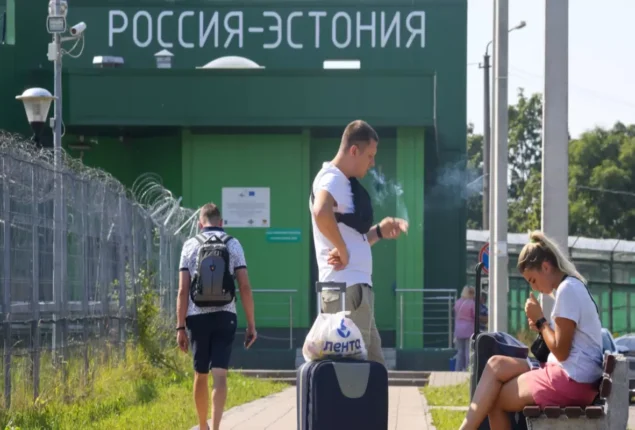Russia enjoys the luxury of gas while Europe suffers
Russian gas flaring facility near Finland produces huge amounts of carbon dioxide...

Europe considers prohibiting Russian tourists
After six months of conflict in Ukraine, Europe is outraged and distraught and debating whether to impose travel restrictions on Russian citizens. This decision has significant diplomatic and moral ramifications.
The split-screen image of Russian holidaymakers lounging on beaches in the Mediterranean while many Ukrainians spend part of the summer ducking missiles and artillery has shocked Kyiv’s friends.
The discussion over visa restrictions, sparked by a request by the Ukrainian government earlier this month, is raging from Brussels to Washington, highlighting long-standing divisions within the West about how forcefully to face Russia in the war’s next phase.
The moral question that hangs over the capitals of Europe is whether or whether the Russian people are complicit in President Vladimir Putin’s war by not raising much of a fuss.
Pluralism and justice are pitted against national sovereignty; responsibility for a country’s acts is pitted against the moral risks of “collective punishment” in Europe’s battle to find an answer.
Estonian Foreign Minister Urmas Reinsalu stated this week that “we are not talk about punishment, we are speaking about limiting measures which are aimed at ending the war.” “Entry into any certain country is not a human right,”
The choice might have a big impact on the continent’s economy. According to the analytics company GlobalData, Russian visitors spent $22.5 billion abroad last year, and there were approximately 13.7 million overseas departures from Russia. According to the organisation, Italy and Cyprus are among the top vacation spots for Russians.
Kyiv wants to change that and has requested that the European Union and the Group of Seven, a group that also includes the United States, impose travel restrictions on Russian citizens.
Although not all Western countries are in agreement, the problem may be resolved at an E.U. foreign ministers meeting in Prague the following week.
Chancellor Olaf Scholz has stated that Germany is opposed to a visa ban that would hurt “ordinary Russians,” adding that “this is Putin’s battle.” Josep Borrell, the head of the E.U.’s foreign policy, said it was “not a good idea” and that “we have to be more selective” during a conference in Spain on Monday.
Catch all the World News, Breaking News Event and Latest News Updates on The BOL News
Download The BOL News App to get the Daily News Update & Follow us on Google News.